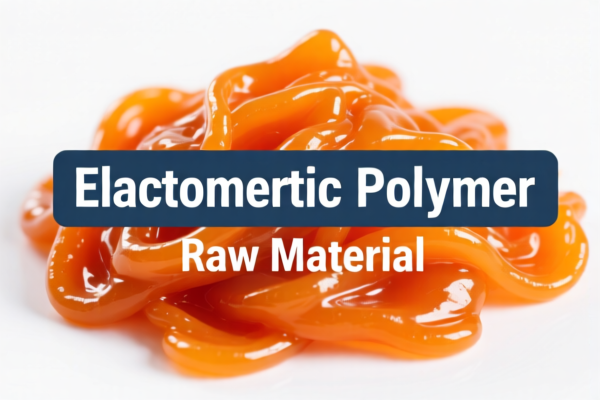| HS Code | Official Doc | Tariff Rate | Origin | Destination | Effective Date |
|---|---|---|---|---|---|
| 3906902000 | Doc | 61.3% | CN | US | 2025-05-12 |
| 3907610010 | Doc | 61.5% | CN | US | 2025-05-12 |
| 3906905000 | Doc | 59.2% | CN | US | 2025-05-12 |
| 3907690010 | Doc | 61.5% | CN | US | 2025-05-12 |
| 3906901000 | Doc | 55.0% | CN | US | 2025-05-12 |




Product Name: Acrylic Polymer Raw Material
Classification: Multiple HS codes may apply depending on specific product attributes (e.g., viscosity, type of polymer, etc.)
✅ HS CODE Classification Overview
- HS CODE 3906902000
- Description: Acrylic polymer raw material
- Total Tax Rate: 61.3%
- Breakdown:
- Base Tariff: 6.3%
- Additional Tariff: 25.0%
- Special Tariff after April 11, 2025: 30.0%
-
Note: This code is suitable for general acrylic polymer raw materials.
-
HS CODE 3907610010
- Description: Acrylic resin raw material (specific viscosity range)
- Total Tax Rate: 61.5%
- Breakdown:
- Base Tariff: 6.5%
- Additional Tariff: 25.0%
- Special Tariff after April 11, 2025: 30.0%
-
Note: This code applies if the product has a specific viscosity number. You must confirm the exact viscosity to determine the correct code (e.g., 3907.61.00.10 or 3907.61.00.50).
-
HS CODE 3906905000
- Description: Acrylic resin raw material (primary form)
- Total Tax Rate: 59.2%
- Breakdown:
- Base Tariff: 4.2%
- Additional Tariff: 25.0%
- Special Tariff after April 11, 2025: 30.0%
-
Note: This code is for acrylic resin in its primary form, which may be suitable for certain raw materials.
-
HS CODE 3907690010
- Description: Acrylic resin raw material (other types)
- Total Tax Rate: 61.5%
- Breakdown:
- Base Tariff: 6.5%
- Additional Tariff: 25.0%
- Special Tariff after April 11, 2025: 30.0%
-
Note: This code applies to acrylic polymer raw materials that do not fall under the more specific 3907.61.00.10 or 3907.61.00.50 categories.
-
HS CODE 3906901000
- Description: Acrylic rubber raw material (elastic polymer)
- Total Tax Rate: 55.0%
- Breakdown:
- Base Tariff: 0.0%
- Additional Tariff: 25.0%
- Special Tariff after April 11, 2025: 30.0%
- Note: This code is for acrylic rubber, which is a type of acrylic polymer with elastic properties.
⚠️ Important Notes and Recommendations
- Time-sensitive Tariffs:
-
April 11, 2025 Special Tariff: All listed HS codes will have an additional 30.0% tariff applied after this date. Ensure your import timeline accounts for this.
-
Anti-dumping duties:
-
Not explicitly mentioned for acrylic polymer raw materials, but always verify with customs or a compliance expert if the product is subject to anti-dumping or countervailing duties.
-
Certifications and Documentation:
- Confirm the exact product type (e.g., viscosity, polymer type, whether it's rubber or resin) to select the correct HS code.
-
Verify if certifications (e.g., REACH, RoHS, or other regulatory compliance) are required for import.
-
Unit Price and Material Verification:
- Ensure the material composition and unit price are accurately documented to avoid misclassification and potential penalties.
📌 Proactive Advice
- Double-check the product’s technical specifications (e.g., viscosity, polymer type, and physical properties) to determine the most accurate HS code.
- Consult with a customs broker or compliance expert if the product is part of a complex supply chain or subject to special regulations.
- Keep records of all documentation (e.g., invoices, technical data sheets) to support customs declarations and audits.
Product Name: Acrylic Polymer Raw Material
Classification: Multiple HS codes may apply depending on specific product attributes (e.g., viscosity, type of polymer, etc.)
✅ HS CODE Classification Overview
- HS CODE 3906902000
- Description: Acrylic polymer raw material
- Total Tax Rate: 61.3%
- Breakdown:
- Base Tariff: 6.3%
- Additional Tariff: 25.0%
- Special Tariff after April 11, 2025: 30.0%
-
Note: This code is suitable for general acrylic polymer raw materials.
-
HS CODE 3907610010
- Description: Acrylic resin raw material (specific viscosity range)
- Total Tax Rate: 61.5%
- Breakdown:
- Base Tariff: 6.5%
- Additional Tariff: 25.0%
- Special Tariff after April 11, 2025: 30.0%
-
Note: This code applies if the product has a specific viscosity number. You must confirm the exact viscosity to determine the correct code (e.g., 3907.61.00.10 or 3907.61.00.50).
-
HS CODE 3906905000
- Description: Acrylic resin raw material (primary form)
- Total Tax Rate: 59.2%
- Breakdown:
- Base Tariff: 4.2%
- Additional Tariff: 25.0%
- Special Tariff after April 11, 2025: 30.0%
-
Note: This code is for acrylic resin in its primary form, which may be suitable for certain raw materials.
-
HS CODE 3907690010
- Description: Acrylic resin raw material (other types)
- Total Tax Rate: 61.5%
- Breakdown:
- Base Tariff: 6.5%
- Additional Tariff: 25.0%
- Special Tariff after April 11, 2025: 30.0%
-
Note: This code applies to acrylic polymer raw materials that do not fall under the more specific 3907.61.00.10 or 3907.61.00.50 categories.
-
HS CODE 3906901000
- Description: Acrylic rubber raw material (elastic polymer)
- Total Tax Rate: 55.0%
- Breakdown:
- Base Tariff: 0.0%
- Additional Tariff: 25.0%
- Special Tariff after April 11, 2025: 30.0%
- Note: This code is for acrylic rubber, which is a type of acrylic polymer with elastic properties.
⚠️ Important Notes and Recommendations
- Time-sensitive Tariffs:
-
April 11, 2025 Special Tariff: All listed HS codes will have an additional 30.0% tariff applied after this date. Ensure your import timeline accounts for this.
-
Anti-dumping duties:
-
Not explicitly mentioned for acrylic polymer raw materials, but always verify with customs or a compliance expert if the product is subject to anti-dumping or countervailing duties.
-
Certifications and Documentation:
- Confirm the exact product type (e.g., viscosity, polymer type, whether it's rubber or resin) to select the correct HS code.
-
Verify if certifications (e.g., REACH, RoHS, or other regulatory compliance) are required for import.
-
Unit Price and Material Verification:
- Ensure the material composition and unit price are accurately documented to avoid misclassification and potential penalties.
📌 Proactive Advice
- Double-check the product’s technical specifications (e.g., viscosity, polymer type, and physical properties) to determine the most accurate HS code.
- Consult with a customs broker or compliance expert if the product is part of a complex supply chain or subject to special regulations.
- Keep records of all documentation (e.g., invoices, technical data sheets) to support customs declarations and audits.
Customer Reviews
No reviews yet.